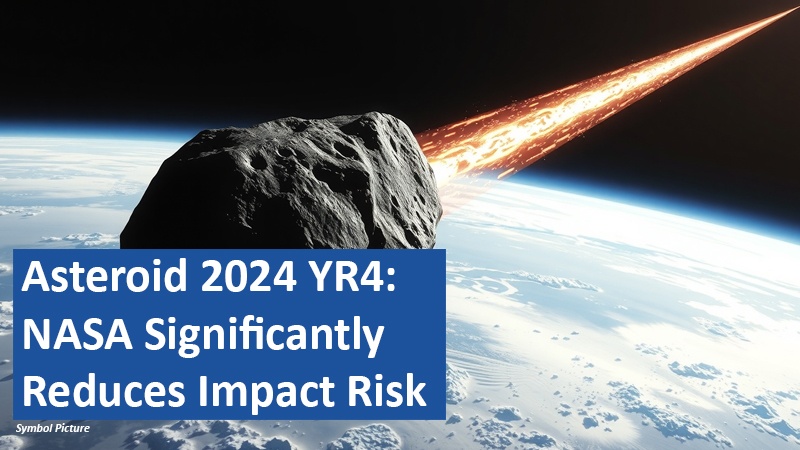
Good news for those concerned about reports of a potential asteroid impact in 2032: NASA has dramatically lowered the probability of an impact from asteroid 2024 YR4. The new assessment provides reason for optimism.
######################################################
Now exclusively try Amazon Prime and Prime Video free for 30 days!
##########################################################
NASA Revises Impact Risk
NASA announced the updated risk assessment on its X feed at around 5:00 p.m. EST on Wednesday (Feb. 19). The new evaluation is based on additional orbital data for the asteroid, estimated to be about 180 feet (55 meters) wide, collected overnight between Feb. 18 and 19.
Dramatic Decrease in Probability
The significant drop in impact risk for 2024 YR4 came just a day after its risk factor was increased to 1 in 32 or 3.1%. This increase had made 2024 YR4 the riskiest asteroid in the history of NASA’s Center for Near Earth Object Studies (CNEOS) Sentry Risk Table.
Asteroid Still Under Observation
Despite the extreme reduction in impact risk, 2024 YR4 remains at the top of the Sentry table. The next riskiest asteroid on the table is 1950 DA, with a 0.039% chance of impacting Earth in 2880. Even if 2024 YR4 misses Earth in 2032, there’s a small chance of about 1 in 125 or 0.8% that the asteroid could hit the moon.
Improved Data Thanks to Observations
“New observations of asteroid 2024 YR4 helped us update its chance of impact in 2032. The current probability is 1.5%,” NASA wrote. “Our understanding of the asteroid’s path improves with every observation. We’ll keep you posted.”
The reduction in impact risk for asteroid 2024 YT4 by NASA was also confirmed by the European Space Agency (ESA), which lowered the risk of an Earth impact in 2032 to 1.38% or about 1 in 73. Scientists emphasize that continuous observation of asteroids is crucial for early detection of potential hazards and making accurate predictions.
How important do you think ongoing observation and research of asteroids is, and what measures should be taken to protect Earth from potential impacts? Share your thoughts!
Based on content from www.space.com and own research.